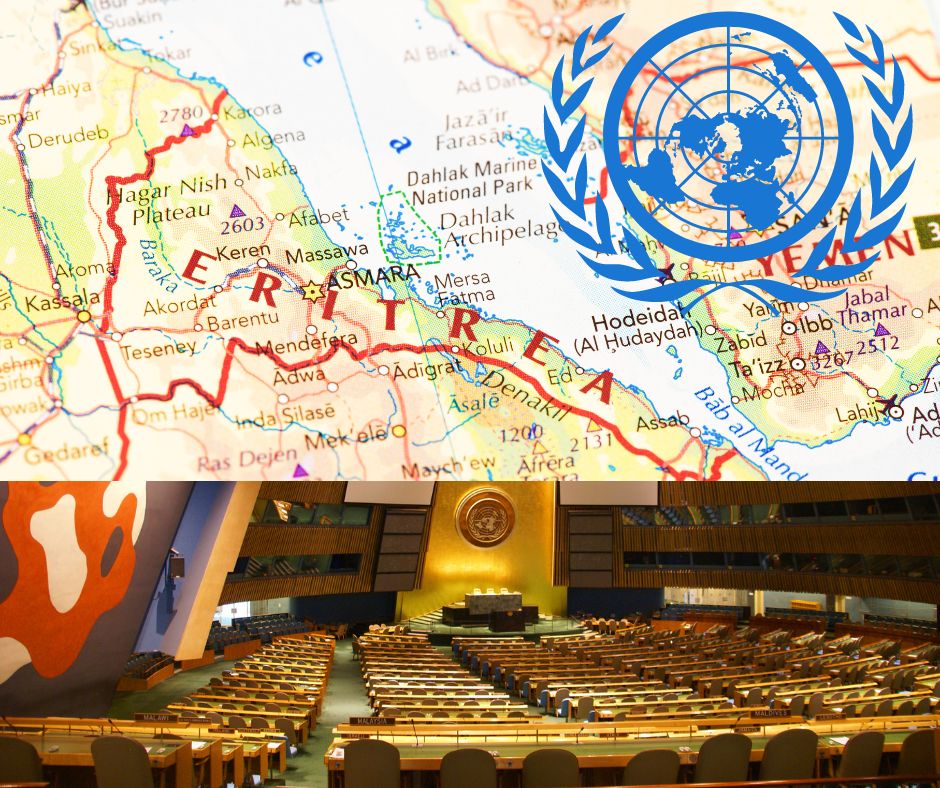
Summary: Minister Osman Saleh spoke at the 77th United Nations General Assembly in New York. He noted that the COVID-19 pandemic has exacted an enormous human toll globally, inculcating chronic economic difficulties and structural setbacks through domestic economic downturns and disruption of international supply chains. Eritrea’s Foreign Minister, Osman Hery, emphasised the need for a new international order that is based on consensus and includes all its constituents equally. He added that Eritrea has undoubtedly been the target of this unjust international order’s harsh sanctions and the deployment of proxy forces to foment ongoing hostilities and instability.
Mr. Osman Saleh, Minister of Foreign Affairs, spoke at the 77th United Nations General Assembly.
In his speech, Minister Osman Saleh noted that the UN General Assembly’s annual meeting is being held under the appropriate theme “A watershed moment: transformative solutions to interlocking challenges” at a time when there are numerous, interconnected crises of epic proportion that have negatively affected all parts of the global village.
Minister Osman continued, “While this scourge persists, the world is currently confronted with equally perilous fallouts of climate change and global warming, which aggravate the already precarious situation.” In the past two and a half years, the COVID-19 pandemic has exacted an enormous human toll globally, inculcating chronic economic difficulties and structural setbacks through domestic economic downturns and disruption of international supply chains.
Minister Osman added that in addition to the COVID-19 pandemic, other interlocking variables and dimensions of the crises serve as the cumulative effects and tell-tale symptoms of a precarious and seriously flawed global governance architecture and are byproducts and manifestations of the cyclical conflicts, which have taken on exceptionally dangerous and almost apocalyptic dimensions with the war in Ukraine.
The minister emphasised that the much-touted “rules-based international order” represented a skewed set of dishonest, asymmetric, and non-consensual norms and regulations and was primarily created to advance and safeguard the privileges of its principal architects, to the exclusion of most other nations and peoples, and to promote a monolithic and condescending ideological perspective that gives no room and space to historical context, distinct realities, and cultures.
Minister Osman emphasised that the costly interventions, particularly in Africa and the Middle East over the past thirty years, heavy-handed interference in domestic affairs, the imposition of illegal and unilateral sanctions, the distortion and weaponization of human rights, and all episodes of international and regional instability stem from the flawed global governance architecture.
Minister Osman emphasised that the effects of this dysfunctional system go beyond the sovereign states and peoples of the Global South and include extreme and absurd inequalities, where less than 1% of the population owns 99% of the nation’s wealth; unrestrained consumerism, which has exacerbated climate change; and the atomization of societies, which has practically destroyed social compassion and community care by encouraging exclusive and unnatural inequalities.
Minister Osman added that Eritrea has undoubtedly been the target of this unjust international order’s harsh sanctions, deployment of proxy forces to foment ongoing hostilities and instability, and weaponization of human rights to shun and isolate the fledgling country.
Regarding Eritrea’s perspective, Minister Osman emphasised the need for the global community and the UN system to create a new international order that is based on consensus and includes all of its constituents equally; the religious principles of the equality of all Member States and the respect of the sovereignty and political independence of nations and peoples to be upheld; and equitable representation of all Member States in all international bodies’ decision-making.
Analysis by: Advocacy Unified Network
